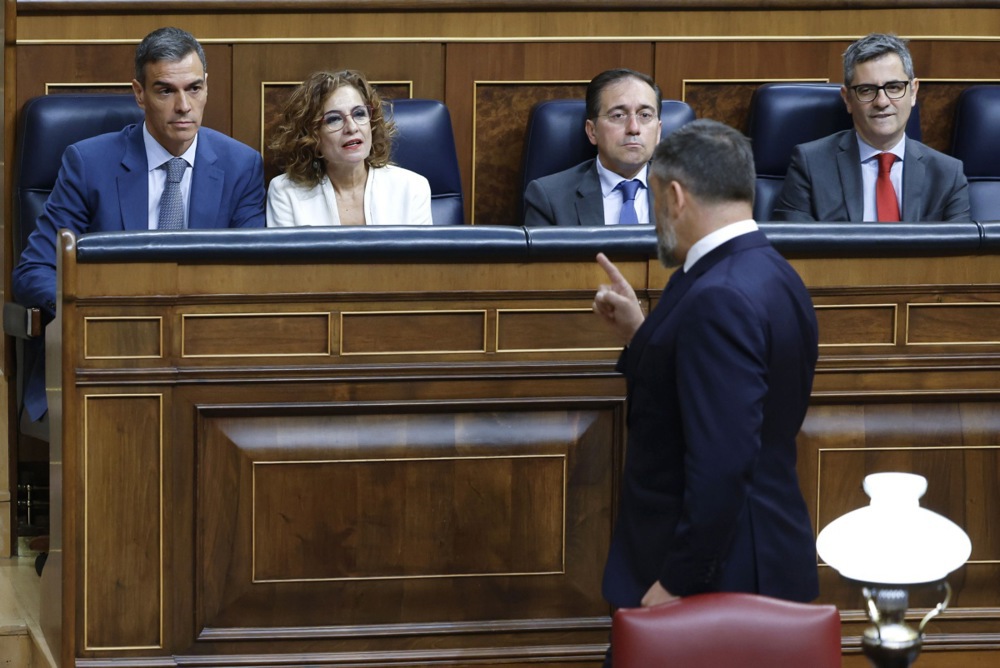Two months ahead of Dutch elections, Geert Wilders’ party continues to solidly lead the pack.
The Liberal VVD party is losing ground, while the centre-right Christian Democratic Appeal (CDA) party is seeing a surge in support.
Wilders’ party has made up ground after dipping in the polls after the 2023 elections.
Today, his Freedom Party, or PVV, would win 31 seats on current polls. It currently holds 37.
Those who told pollsters they will vote for the PVV said they preferred Wilders’ party because of its strong stance on migration.
A striking change is the surge in the CDA party’s fortunes. After gaining only five seats in the 2023 elections, today it would win 25 in the polls, which would make it a major party again after years of steady decline.
Its resurgence appears connected to the popularity of party President Henri Bontenbal.
Poll respondents rated the CDA as a solid, reliable, stable centrist party with a trustworthy leader.
The collapse of the centrist NSC, a break away party from the CDA, has also played an important role. This party has dropped from winning 20 seats in 2023, to just one if elections were held today.
BBB–the Farmer-Citizen Movement, which also has a Christian Democrat pedigree– would win six seats, a loss of one from the seven they have at present, which represents a recovery compared to its earlier drop in the polls.
Frans Timmerman’s GroenLinks-PvdA would win 23 seats, a loss of two compared to the last elections, and fewer than earlier polls had suggested.
Those supporting Timmerman’s Greens said they were attracted by its social and sustainable policies.
Polling in third place means Timmerman would appear unlikely to end up as prime minister.
The VVD is polling between 14 and 18 seats, a drop compared to its current 25.
In late July, the party was still polling between 20 and 24 seats. Now, it would drop to fourth place.
Voters saw the VVD’s leader Dilan Yesilgöz as the reason for turning away from the party.
The right-wing Ja21 is also climbing in the polls and can hope to win nine seats, compared to its one right now.
According to pollsters, all of these results were provisional, because one in three voters say they still do not know who they would vote for.
But if the forecasts become reality hold, forming a government coalition could be a difficult task again, with many parties being needed to secure a parliamentary majority.
Researchers say that pre-election campaigning could play a big role in the outcome.
On top of this, the CDA and VVD say they will not form a coalition with the PVV. Meanwhile, the VVD’s Yesilgöz says she would not serve in a cabinet together with the Socialists and Greens.
The latest poll, by research agency Ipsos I&O, was aggregated together with a second recent poll from Verian/EenVandaag.





